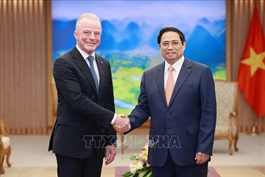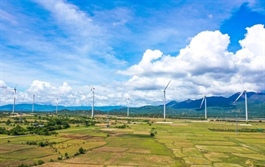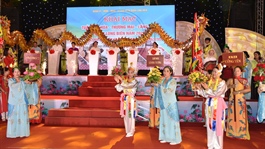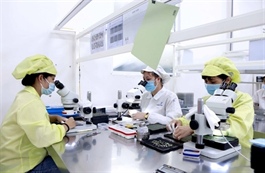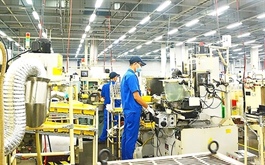Meeting plans out how EVN will lead Viet Nam's energy development
Meeting plans out how EVN will lead Viet Nam's energy development
Deputy Prime Minister Le Minh Khai on Thursday called for more support for Viet Nam Electricity (EVN) at a meeting with ministries on the EVN’s restructuring project for 2021-25.
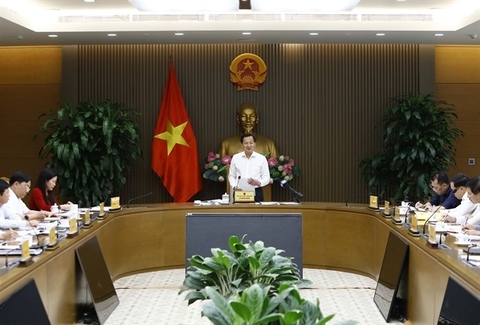
Deputy Prime Minister Le Minh Khai chairs the conference. — VNA/VNS Photo An Dang |
Ho Sy Hung, deputy chairman of the Commission for the Management of State Capital at Enterprises (CMSC), said that the overall objective was to develop EVN into a strong economic group with a sustainable, efficient and profitable business, preserve and develop state equity invested in EVN and capital invested by EVN in other enterprises.
EVN will be the core for the country's electricity industry to develop quickly and sustainably, compete and integrate into the international economy, and develop the electricity market based on the roadmap the government prescribes.
Deputy Chairwoman of the Government Office Mai Thi Thu Van said that the project was elaborately built. Its content was updated according to the Prime Minister’s Decision No 360/QD-TTg.
EVN has fully explained the ministries’ opinions in the submission dossier.
In the project, EVN sets targets to improve governance capacity and focuses on three main solutions, including perfecting management methods; improving management tools; standardise the quality of human resources and remuneration policies for employees.
EVN sets up solutions to ensure financial balance in the 2021-25 period, including optimising costs, increasing electricity production and supply revenue, saving costs in each production stage, and closely monitoring economic-technical indicators that affect the cost for production, power transmission and distribution.
Deputy PM Khai said electricity was related to many businesses, such as oil, gas and coal-mineral groups, and greatly affected macroeconomic management.
EVN should have appropriate and timely solutions to ensure the group’s operation while ensuring macroeconomic stability and curbing inflation.
Appreciating the group’s efforts to set up the project, Deputy PM Khai noted that EVN was one of the large corporations, and equalising and divesting subsidiary capital depended on many factors, so it should set appropriate goals to be able to achieve.
Commenting on the project's objectives, the Deputy PM requested the EVN to serve power source for economic development and the needs of the people and support people in poor, remote areas.
He emphasised that the CMSC and the EVN must fully collect comments at the meeting and ensure the project would be effective, feasible, and suitable for the actual situation.
Based on current legal regulations, EVN should be designed in a large enterprise model.
Deputy PM Khai agreed with the project’s solutions on consolidating the management organisation, improving human resource efficiency, promoting digital transformation and applying science and technology.
He proposed to clarify these contents in the project.







